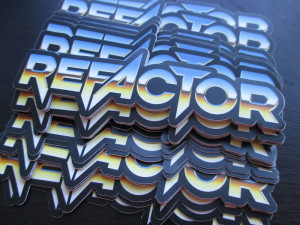From The Archives: This article is one of the all-time most popular posts from my previous blog Graham Hacking Scala. I thought it worth updating and re-printing it here.
It’s a pretty widely-accepted view that, as a programmer, learning new languages is a Good Idea™ . Most people with more than one language under their belt would say that learning new languages broadens your mind in ways that will positively affect the way you work, even if you never use that language again.
With the Christmas holidays coming up and many people likely to take some time off work, this end of the year presents a great opportunity to take some time out from your week-to-week programming grind and do some learning.
 With that in mind, I present “Graham’s Guide to Learning Scala”. There are many, many resources on the web for learning about Scala. In fact, I think there’s probably too many! It would be quite easy to start in the wrong place and quickly get discouraged.
With that in mind, I present “Graham’s Guide to Learning Scala”. There are many, many resources on the web for learning about Scala. In fact, I think there’s probably too many! It would be quite easy to start in the wrong place and quickly get discouraged.
So this is not yet another resource to add to the pile. Rather, this is a guided course through what I believe are some of the best resources for learning Scala, and in an order that I think will help a complete newbie pick it up quickly but without feeling overwhelmed.
And, best of all, it has 9 Steps!
Continue reading →
 Hadi Hariri is a Developer and Technical Evangelist at JetBrains. He spoke at YOW! about refactoring legacy codebases.
Hadi Hariri is a Developer and Technical Evangelist at JetBrains. He spoke at YOW! about refactoring legacy codebases.
 Keynote, Day 1:
Keynote, Day 1: 
 a broad and powerful collections framework
a broad and powerful collections framework I think the term
I think the term  With that in mind, I present “Graham’s Guide to Learning Scala”. There are many, many resources on the web for learning about Scala. In fact, I think there’s probably too many! It would be quite easy to start in the wrong place and quickly get discouraged.
With that in mind, I present “Graham’s Guide to Learning Scala”. There are many, many resources on the web for learning about Scala. In fact, I think there’s probably too many! It would be quite easy to start in the wrong place and quickly get discouraged.